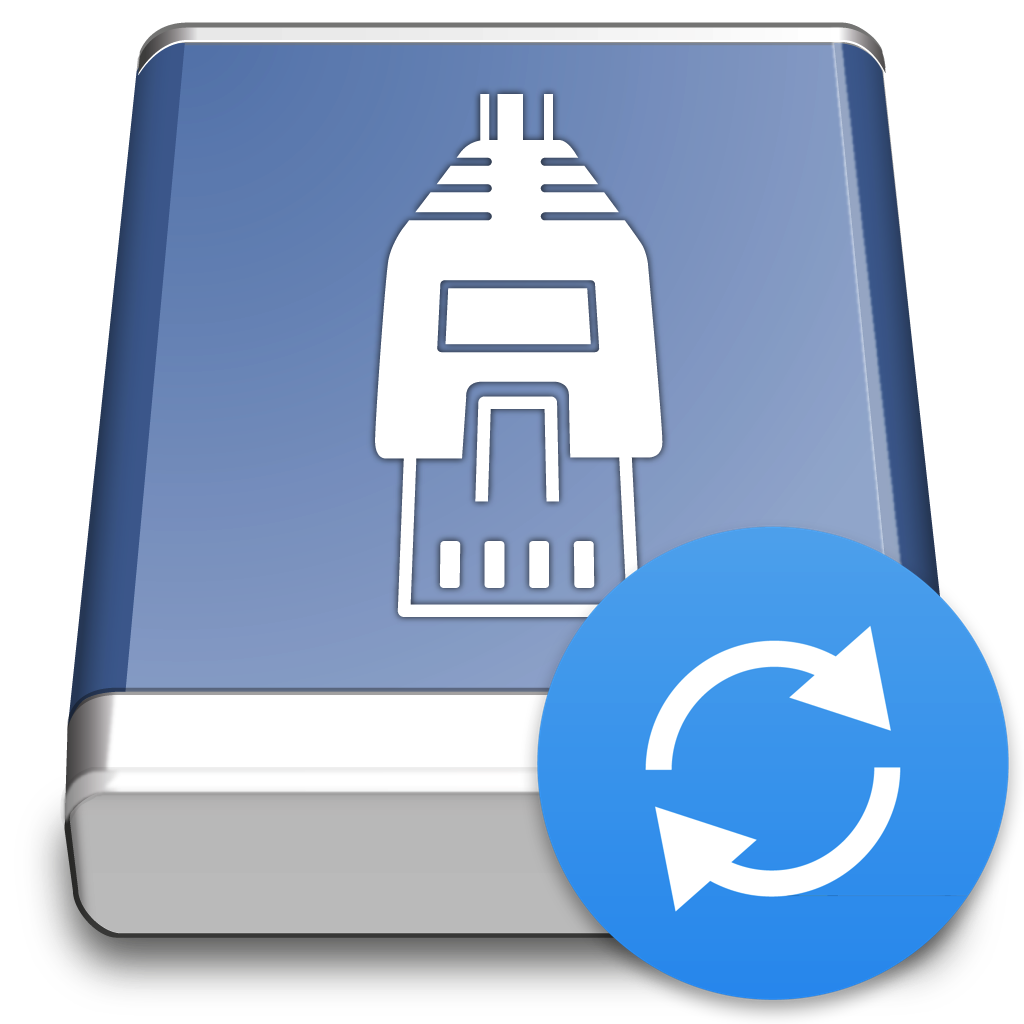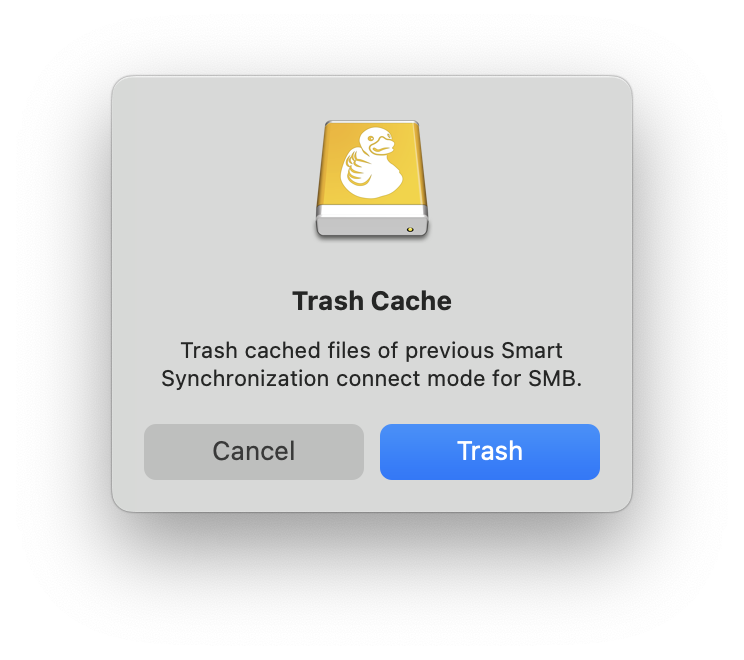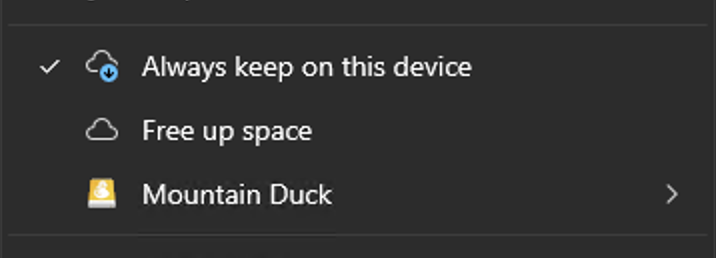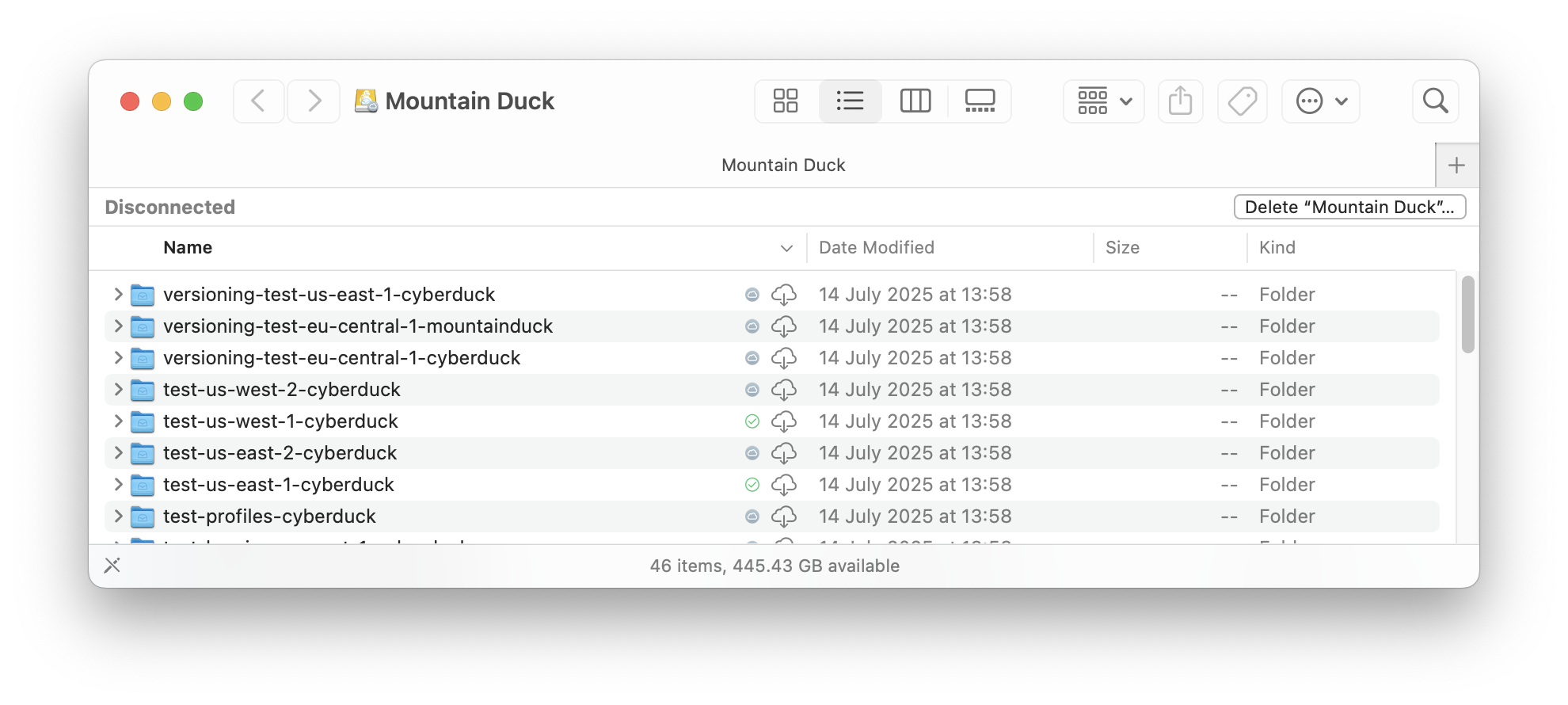Integrated

Version 5
Mountain Duck 5 required.
Local storage is managed by the operating system. The mount is not seen as a network volume by applications but as a regular folder on disk. This option uses the tightly integrated File Provider (macOS) and Cloud Files (Windows) APIs. Directories can be browsed when offline and files opened are made available for later offline access. You can choose to make selected files and folders available for offline use. Changes to files are uploaded in the background as soon as a connection is available.
Tip
You can access files in Integrated connect mode without being always connected the server or cloud storage.
Status of Files
Files and folders on a mounted volume have a status icon overlay in File Explorer (Windows) and Finder (macOS).
 Up to Date
Up to Date
The file or the contents of a directory has been opened and downloaded to your computer and therefore currently synced with the server or cloud storage. The file takes disk space on your computer and can always be opened even when no connection to the server or cloud storage is possible. New files in a directory on the remote server will appear as Online Only and are not downloaded automatically. Files copied to a volume are kept cached by default.
Note
Files can be purged automatically from the cache when not accessed or the cache size limit is exceeded. Refer to Cache Limitations.
 Online Only
Online Only
The file can only be opened when a connection to the server or cloud storage can be made. The file does not take any space on your computer. The file is downloaded on demand when you open it.
 In Sync
In Sync
The file or folder is selected to be synced with the server or cloud storage to always keep offline. The file takes disk space on your computer and can always be opened even when no connection to the server or cloud storage is possible. New files in a directory on the remote server will be downloaded automatically.
Tip
Files explicitly selected to keep offline are not automatically purged. Refer to Cache Limitations.
 Sync in Progress
Sync in Progress
The file or folder is currently syncing with the server or cloud storage. Check the menu with the sync status for current download or upload progress.
 Sync Error
Sync Error
Files that failed to sync after changes. You are missing permission to write to the file or another problem occurred. Please contact your web hosting service provider for assistance. To resolve the error, move the file to your local disk, and reload the directory. Refer to Sync Conflicts for possible error scenarios. You can try to repeat the failed transfer by selecting Mountain Duck → Retry in the context menu. If a sync error cannot be solved using Mountain Duck → Retry because the server does not allow the operation (i.e. due to a permission issue), you can resolve the error state on the file or folder by
Move the file or folder to another location on the volume
Delete the file or folder
To upload files to a target directory no longer existing on the server, you have to move the files to a location found on the server.
 Sync Paused
Sync Paused
The file or folder is pending syncing with the server but synchronization has been paused.
 Ignored
Ignored
The file or folder is saved in local cache and not synced. New Folders, empty files and files matching excluded filename patterns are not uploaded. Folders are uploaded after being renamed.
Sync Progress
Changes to files are uploaded in the background as soon as a connection is available. Progress is reported by animating the status bar icon and a menu item titled Sync in Progress.
Integrated Connect Mode
Progress is shown when downloading or uploading a file with a progress bar over the file icon or circular progress indicator adjacent the filename.
Keep Offline
Choose Mountain Duck → Keep Offline on Local Disk to make files and folders available offline. The status of the file will change to In Sync. The action is recursive for all contained files when a folder is selected and applies to new files found on the remote storage.
Delete on Local Disk
Choose Mountain Duck → Delete on Local Disk to delete the offline copy. The status of the file will change to Online. The action is recursive for all contained files when a folder is selected and allows you to quickly free up space used in the cache on your local disk.
macOS
Choose Remove Download instead.
Windows
Choose Free up space instead.
Cache
Delete the sync cache for a bookmark on delete or changing the connect mode:
Choose Delete for the bookmark with connect mode set to Smart Synchronization or Integrated deletes the bookmark and all cached files.
Confirm to delete cached files when switching the connect mode between Integrated and Smart Synchronization

Limitations
Custom mount locations are not honoured.
Pseudo File locking is not supported.




